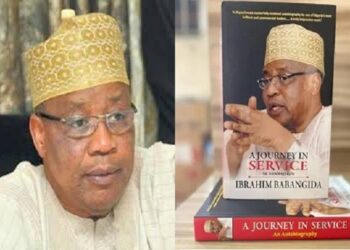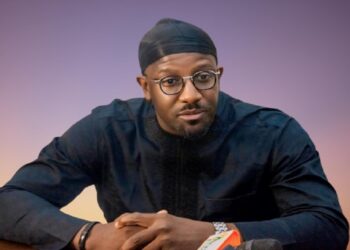By Sylvester Ikechukwu Onwudiwe
The declaration of the Republic of Biafra on May 30, 1967, was a landmark event in African history, encapsulating the quest for self-determination and survival by the Igbo people and other ethnic minorities of Nigeria’s Eastern Region.
The bold act, spearheaded by Colonel Chukwuemeka Odumegwu Ojukwu, was a culmination of deep-seated ethnic, political, and economic tensions within the nascent Nigerian state. Far from being a sudden rebellion, it was shaped by decades of grievances, punctuated by the horrific pogroms of 1966 that made the Igbo people feel that their survival in a unified Nigeria was impossible.
The story of Biafra is not solely about the Igbo people but a complex interplay of internal and external dynamics, including the involvement of regional leaders, international actors, and global organizations.
The roots of the Biafran secession lay in the ethnic and regional complexities of Nigeria. The three dominant regions—Northern, Western, and Eastern—were the bases of Hausa-Fulani, Yoruba, and Igbo hegemony, respectively. Political alliances were fragile and often based on ethnic patronage rather than national unity.
- Colonel Chukwuemeka Odumegwu Ojukwu: As the Military Governor of the Eastern Region, Ojukwu became the face of the Biafra struggle. His leadership was marked by eloquence, intellectual depth, and an unwavering commitment to his people’ safety.
- Dr. Nnamdi Azikiwe: A former Nigerian President and one of the foremost pan-Africanists, Azikiwe initially sought reconciliation and unity but later lent his moral support to the Biafra cause, emphasizing the right to self-determination.
- Sir Louis Mbanefo: A respected jurist, he served as Biafra’s Chief Justice, providing a legal framework for the new republic.
- Philip Effiong: Deputy to Ojukwu, Effiong was a pragmatic and respected leader, who later played a crucial role in negotiating Biafra’s surrender in 1970.
- Christopher Okigbo: A renowned poet and a Biafran diplomat, Okigbo was instrumental in galvanizing international support for the Biafran cause before tragically losing his life on the battlefield.
On the opposing side was General Yakubu Gowon, the military head of state, who rose to power after the 1966 counter-coup. Gowon, a Northern Christian, was tasked with holding the fragile nation together. His government included powerful figures like:
- Chief Obafemi Awolowo, Nigeria’s Federal Commissioner for Finance, whose controversial economic policies, including the blockade of Biafra, played a critical role in the conflict.
- General Hassan Katsina: A Northern military leader and key strategist in the Nigerian Army’s campaign against Biafra.
- Colonel Murtala Mohammed: Known for his aggressive military strategies during the conflict, Mohammed was a polarizing figure in the Federal effort to subdue Biafra.
The Biafran conflict unfolded at the height of the Cold War, drawing significant attention from global powers. The interplay of international politics shaped the course of the conflict, as foreign governments and organizations took sides based on ideological, strategic, and economic interests.
- France: The French government, led by President Charles de Gaulle, provided indirect support to Biafra, including arms supplies and diplomatic backing. De Gaulle’s stance was partly motivated by a desire to weaken Nigeria, a British ally, and secure access to Biafra’s oil.
- Portugal: Portugal, under the authoritarian regime of António de Oliveira Salazar, openly supported Biafra by providing weapons, logistical aid, and access to airstrips for the transport of supplies.
- Israel: Though not openly supportive, Israel provided covert assistance to Biafra, viewing the conflict as an opportunity to counter Arab influence in Africa.
- Humanitarian Organizations: Groups like the International Red Cross and religious charities such as Caritas International played a significant role in providing aid to Biafra. These organizations highlighted the humanitarian crisis, bringing the plight of the Biafran people to global attention.
- The United Kingdom: Britain, under Prime Minister Harold Wilson, was Nigeria’s most steadfast ally. British support included military equipment, diplomatic backing, and economic aid. This support was driven by Britain’s interest in maintaining access to Nigeria’s vast oil reserves and preserving the unity of its former colony.
- The Soviet Union: Despite its ideological differences with Nigeria, the USSR supported Gowon’s government, supplying arms and military advisors. This alignment was motivated by the Soviets’ desire to expand their influence in Africa.
- The United States: The U.S., under President Lyndon B. Johnson, adopted a neutral stance, officially supporting Nigeria’s territorial integrity while refraining from direct involvement.
The OAU, a pan-African body committed to preserving the sovereignty and territorial integrity of its member states, was staunchly against Biafra’s secession. Leaders like Emperor Haile Selassie of Ethiopia and President Julius Nyerere of Tanzania sought to mediate the conflict but ultimately sided with Nigeria’s stance on unity. However, Tanzania broke ranks with the OAU by officially recognizing Biafra, followed by Gabon, Côte d’Ivoire, and Zambia, highlighting the division among African nations.
The immediate trigger for secession was the pogroms of 1966, during which tens of thousands of Igbo people were killed in the Northern Region. Survivors, fleeing the violence, sought refuge in the Eastern Region, where calls for secession intensified. The pogroms were not just acts of violence but an existential threat to the Igbo, deepening their conviction that they were no longer safe in a unified Nigeria.
The humanitarian dimension of the Biafran War remains one of its most harrowing aspects. Starvation became a weapon of war, with the Nigerian government enforcing a blockade that prevented food and medical supplies from reaching Biafra. Images of malnourished children broadcast globally spurred international outrage, but they also exposed the inadequacy of diplomatic interventions.
On May 30, 1967, Ojukwu declared the Republic of Biafra, citing the need to protect the lives and dignity of Easterners. His speech underscored the legitimacy of self-determination:
“We, the people of Eastern Nigeria, having suffered untold hardship, massacre, and humiliation, now resolve to take our destiny into our hands.”
This declaration, while celebrated in the Eastern Region, was seen by Nigeria’s Federal Government as an act of rebellion, triggering the Nigerian Civil War, also known as the Biafran War.
The Biafran War ended in January 1970 with Biafra’s surrender, but the issues that led to its secession remain unresolved. Ethnic tensions, political marginalization, and economic inequality continue to shape Nigeria’s trajectory. For the Igbo and other Easterners, Biafra is not merely a historical episode but a symbol of resilience, dignity, and the enduring struggle for justice.
The legacy of Biafra serves as a cautionary tale about the dangers of injustice and exclusion and underscores the importance of fostering inclusivity in multi-ethnic states. The lessons of Biafra resonate far beyond Nigeria, offering insights into the challenges of nation-building in diverse societies.










